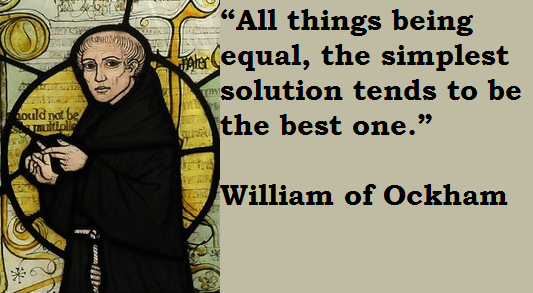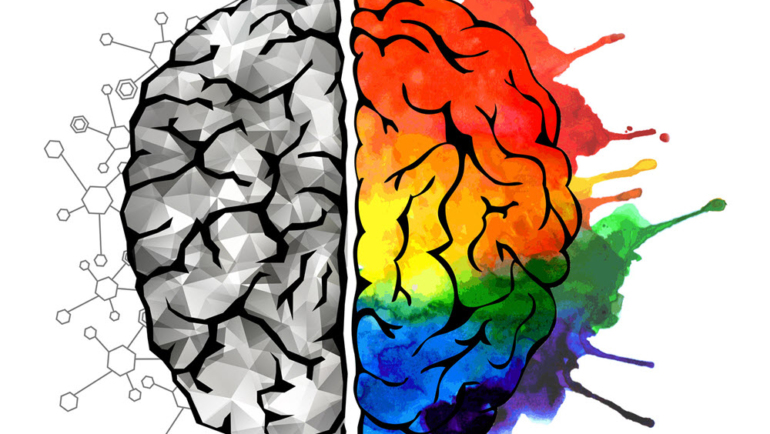Many projects that seek to understand human activity have in common that they try to build a unified theory that includes both the bizarre experiences and the mundane world we usually perceive. They do not see these two worlds as separate but as part of the same whole. However, the traditional way in science has been to exclude things incomprehensible to common sense and thus to define the irrational as a non-existent illusion. That makes people who have experienced unusual things either shaky, crazy, incompetent or otherwise second-class people.
However, there are far too many such people for this hypothesis to be sustainable. Second, those who have experienced something ”mystical” have shown admirable intelligence. Their literary or artistic works are part of the foundation of cultures, without which they would cease to be of much interest. Unusual experiences, therefore, have a place in society. Another way is to question the scientific view and say that it reaches only a tiny part of the reality that some people get with their peculiar abilities. There are reasonable grounds for this view as well.
The third way is to accept both the scientific worldview and the world of strange experiences. That is done both in the research of consciousness and in the studies of mysticism. However, the problem seems to be that these studies cannot usually meet the language of science, the rigorous methodology of science and the criteria for producing scientific knowledge without issues if the studies involve research of non-conscious subjects. There would still be a lot of paradoxes that they cannot resolve. Somewhere—either in the human way of producing and sharing knowledge or in the strange nature of the experiences themselves—there are still unresolved issues. Although there are supporters for both views, no commonly agreed answer has been found.
Mysticism is an attempt to understand the human mind
If the mystical experience itself could be considered the core problem of its research, it would probably clarify the field at least a bit. It has been noted that studies should consider only certain kinds of phenomena mystical experiences. Thus, those that do not meet the criteria should be explained in some other way. Understanding the core of mystical experiences clarifies and simplifies mysticism anyway. It could also help see how many different fields of study seem to be striving for the same goal, even though they have different perceptions of reality. The key is to understand that they all explain the same phenomenon.
For example, the philosophy that originated in ancient Greece was an attempt to explain the world of Greek mysticism through common sense—although it sometimes became very complex and partly incomprehensible. The ontology that is part of philosophy explores the reality that is behind the world of phenomena. It is a study of the world “as such”, not as it appears. Mysticism can also be seen as a kind of ontology, although its research is different from philosophy. The problem is thus reduced to different realities: reality as the ultimate essence of everything and existence as it appears in everyday experience. Ontology is a contemporary form of metaphysics. Metaphysics analyse the nature, purpose, forms, change and immutability of matter, the incompatibility of matter and mind, questions of will, and cosmology.
These same issues, albeit worded differently, are also being considered in many other areas. Before the advent of modern science, philosophers mixed these questions with the aspirations of religions, but problems could also be seen without a religious aspect. Sometimes issues were considered questions of the mind and psyche, to which answers were sought in parapsychology and later in psychology. New perspectives have been brought about by research of consciousness, psychedelics, and neuroscience in modern times. These all ultimately pursue the same goal. Mysticism, if it could be considered a field of research, would also raise the same questions. In it, the question of the freakish mystical experience is central.
In this sense, mysticism is at the heart of things, as it argues that the problems in many fields of science stem precisely from misunderstanding the nature of mystical experience. The problem is that it is practically impossible to say anything clear and revealing about the experience itself. The obscurity of the experience is bound to be accepted because this tradition of narrating has long roots. The reflections of the mystical experience on religions are also quite clear and strong, although, in Western countries, the connection is considered less important and exciting than in Eastern cultures.

The quest for understanding
Defining mysticism as a way of life or a form of religious life does not open up the question of what mysticism is all about. Nor can mysticism be seen as a doctrine nor a uniform interpretation of reality. On the contrary, there is no unified view in mysticism other than that some people have experiences exceedingly challenging to explain and adapt to everyday thinking, practices, and worldview. Mysticism is thus a narrative of this experience, which in itself is admittedly inexplicable.
This contradiction has contributed to a curiosity about this strange phenomenon. Mysticism itself reflects the desire to understand the experience, and therefore mysticism is an inside view of those who have experienced mystical experience. But it has also become an instrument of many personal aspirations. Understanding mysticism as a secret, the esoteric doctrine is a big mistake. There is little talk of mysticism, which is not due to a desire for secrecy but to the nature of the mystical experience itself. There are, of course, people who can be seen as so-called “chosen (by God)” people. Still, in practical terms, the mystical experience is purely a coincidence or, to put it more scientifically, about genetics.
Secret societies try to take advantage of people’s lack of understanding and claim to know something that only a few are lucky to know. There is no secret to mysticism in itself unless someone deliberately wants to mislead people. Unfortunately, there have been such persons throughout history. There is also a deliberate distortion of the concept of “salvation,” for example, by making it the core of many religious doctrines, even though salvation has been and still is a mere hypothesis. The content of this “salvation” is unclear to all but those who have witnessed a mystical experience personally—and they cannot put their vision into words.

Ineffable, but not inexplicable
The mystical experience involves two kinds of ineffability. Because they are not of the same quality, it is possible and essential to distinguish between them. The first relates to our understanding. It arises from the fact that the experience does not apply to our environment in the usual and everyday way but to our tools that perceive it. We are used to describing our feelings and intuition, but that has happened when our perceptions have been aware of them. In a mystical experience, the case is different. Consciousness with which we usually perceive our environment disappears, and we no longer have the tools to understand our perceptions. It is those “instruments of understanding” that disappear, and even though our eyes see and our ears still hear, our understanding no longer works.
Another inexplicability relates to the description of an unconscious experience. Language has evolved to help us describe the environment and convey the reality we consciously perceive to other people. However, we have no tools to describe an unconscious experience. A mystical experience means a loss of rationality and will, as do almost all common spontaneous reactions. That is, when there is a mystical experience, there can be no language. There can be no intuitive language because while we sometimes consider poetry as such, language must be structural and rational if it is to be understood. Private language is as paradoxical an idea as a round square.
It is difficult for us to understand anything where there seems to be no conscious life. That is why the mystical experience is as paradoxical, absurd and obscure as it is. Such does not fit into human reality. Instead, we can try to comprehend the psychic mechanism that underlies such activity. Many fields of research – both academic and non-academic – have merely tried to fit non-conscious reality into the framework of conscious human reality, but the results have been poor. They have ended up in paradoxes, thereby denying the meaning and sometimes unconscious existence, or they have accepted incomprehensible parallel realities.

Can seven billion people be wrong?
I have set out to look at the questions of mysticism through two points that are pretty rare in research. The first is to study if there are apparent disturbances in the functioning of the human psyche—if the reality manifested to man would be distorted somehow. That has raised the possibility of something wrong—not in those who experience something mystical, but rather in those who do not. Another point is the possible disruption of the development of our psyche. I have concluded that modern humans are not a new species but a remnant of our lost ancestors. It implies that mystical experience is also a remnant of pre-human species’ millions of years old mind.
The focus in explaining the distant human emergence is entirely on the psyche of the human species, and in it, mystical experience—or non-conscious mind—plays a key role. Mysticism should be interpreted as a quality that modern man would have almost completely lost over time. The exception would be those brief mystical moments when the psyche—as a tailbone-like remnant—pushes itself into our consciousness in a form that is startling and unrecognizable to most of us. The unstudied conclusion from this is the idea that such a state of mind would be permanent and not just a transient “experience”. Unfortunately, modern human is no longer capable of such. I am not the first to claim the speciality of the human psyche as a genetic problem. I just have not found other similar theories. If there are any, it would be most interesting to hear about them!

Occam’s razor
If hypotheses and theories in science were measured using the “Occam razor,” the principle of parsimony, and philosophers chose the most straightforward explanation to explain phenomena, the homo reliquiae hypothesis would surely get their attention. But, as we know, decisions are also influenced by many non-scientific factors, cultural determinants and politics. Also, the idea of the human mental defect is difficult to accept for many reasons. One reason is an aversion to views that seem to belittle human skills and superiority, although that is certainly not the point here. The second is the personal contribution that many scholars have made to disseminating their theories. The third reason is that the homo reliquiae hypothesis turns many usual notions on its head. Fourth, religions and mysticism are undoubtedly partially correct, even though they are on the wrong path in many respects. Finally, science is challenging to explain what it defines as absurd or non-existent, and that, of course, limits the scope of research. Nevertheless, the homo reliquiae hypothesis offers a solution to many research fields: philosophy (metaphysics, ontology, epistemology, phenomenology), anthropology, psychology, parapsychology (including theosophy, etc.) in neuroscience and psychedelic research. My vision does not offer salvation, but it provides an understanding and more manageable life for those willing to think otherwise.
Some conclusions
Human singularity is not to be found in anatomy but in the psyche, which unfortunately leaves no direct visible evidence. Thus, contrary to what we think, solving the great mysteries of the human mind is possible only through indirect traces.
The special quality of the human psyche can be localized to the mechanisms of growth. Children do not have growth problems; it is only after adolescence that our growth is skewed. The reason for that is that the final stage of psychic growth does not take place. Because this change is missing, we do not easily notice that something is amiss; usually, only the most sensitive people notice that.
Adulthood is not an extension of youth. The time of youth does not determine the goals of adulthood. Youth and adulthood have little to do with each other.
The modern human is not the result of natural selection, but of genetic drift.
Human behaviour does not mean adaptation but the denial of it. H. sapiens is not able to adapt to its environment at all. Human adaptation is illusory.
If, as it looks, the human mental defect is genetic in nature, it cannot be affected by volition. This means many spiritual endeavours are futile in the sense that they cannot affect human change.
We have probably inherited the defect from early human species who carried it for more than 2 million years as a rare exception. The main difference from our ancestors is that we all carry that fault.
“State consciousness”, or the everyday awareness, is something that is intended for children only. It was meant to be temporary and disappear after adolescence. It is a mechanism purely for controlling and protecting growth through childhood to puberty. Since its sole purpose is to protect the growing individual (and by no means to give a true picture of the environment), state consciousness radically distorts our perceptions and limits our experiences. Despite this, it has remained a permanent feature of adult individuals.
State consciousness does not develop; it either just is or is not. State consciousness should disappear as the individual grows up, but this rarely happens. In English, some people call the rare lack of state consciousness “animal consciousness”. It can also be called transcendental experience, or mystical experience, and as such, it is a remnant of a stage of growing up. This means that all major mental changes are growth-related and occur by about the age of twenty.
The modern human is not the gem in the crown of creation. He is not better than animals, not even equal, but worse because he fails to grow up correctly.
Civilization is an exceptional cultural phenomenon that forbids the “shameful” appearance of the human species and any denial of the uniqueness of the human species. Civilization also denies the archaic wisdom found even in “primitive” indigenous cultures, who understood problems of the psyche (->rites of passage), but which science, even with its modern devices, is unable to comprehend.
Homo sapiens is a highly ironic name for a species that became more stupid as it evolved. Sapiens is not a proper species but just the remnant of the Heidelberg man. Compared to earlier human species, modern man has not evolved but has rather declined.
Psychedelics are medicines since ancient times that temporarily fix the effects of the genetic defect by restoring the archaic human mind. However, the psychedelics’ problem is that the vision they open clashes heavily with the view of human beings created by Western civilization.



